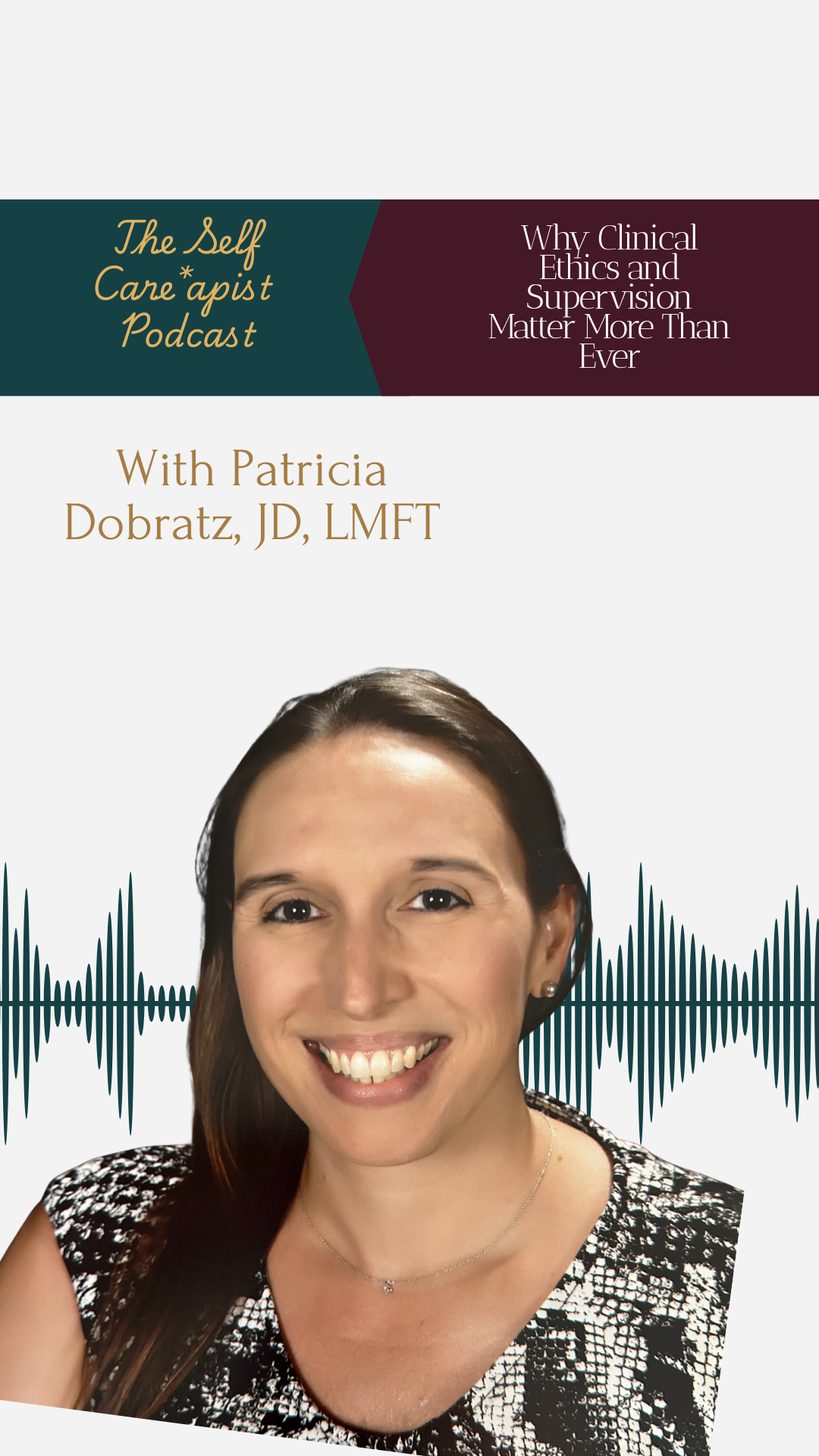In this episode of The Self Careapist podcast, I sit down with Patricia Dobratz, JD, LMFT, former prosecutor turned clinical supervisor and regulatory consultant. Together, we dive into the most overlooked risks and ethical gaps therapists face today and how quickly supervision and regulation are evolving.
Whether you work with are a student or an intern, work at an agency, run your own practice, or supervise new clinicians, this episode is a masterclass in what you didn’t know you needed to know.
When Ethics Are Invisible
Patricia opens up about her career pivot; from prosecuting domestic violence cases to transforming Arizona’s supervision landscape, and why so many therapists don’t realize they’ve stepped into legal gray zones… until they’re already under review.
The truth is that most ethical missteps aren’t malicious they’re underinformed. Things like:
- Accepting client referrals from close-knit communities
- Managing dual relationships in faith, fire, or first responder circles
- Following business coaching advice that directly violates board rules (like soliciting testimonials)
Supervision That Actually Protects People
Patricia has reframed supervision by bringing legal knowledge and clinical excellence into alignment. One key takeaway? Separate your clinical and administrative supervision.
“If you blur the line, your supervisee doesn’t know what to expect and they lose out on the growth they actually need.”
She encourages supervisors to build two types of meetings:
- Administrative (productivity, caseload, documentation)
- Clinical (client care, clinical themes, emotional support)
This protects both parties and keeps supervision effective, ethical, and sustainable.
Supervision Trends to Watch
Patricia shares insider updates from her work with national boards:
- Relational supervision is trending over task-based oversight
- The counseling compact is going live; Arizona will be among the first (Social Work is about a year behind)
- Social media and AI are shifting the meaning of “therapeutic relationships”
What Supervisees Should Demand
If you’re an LMSW, LAC, LMFT or intern, Patricia encourages you to interview your supervisor and be interviewed. Ask:
- What’s your clinical specialty?
- What’s your greatest growth edge as a supervisor?
- What happens between sessions if I need help?
- How do you document supervision hours?
“Supervision is not about checking a box. It’s about developing into a professional with integrity, clarity, and strength.”
Critical Incidents: What to Document and Where
Patricia explains why therapists should keep protected documentation outside the clinical record for:
- Mandated reports
- Subpoenas
- Conflicts of interest
- Ethical decision-making steps
💡 Pro tip: Create a “critical incident” client profile in your EHR or use locked folders with HIPAA-compliant cloud storage.
Want to Stay in This Field Long-Term?
Patricia’s closing message is clear: supervision, ethics, and regulation can be safeguards for yourself, your clients and your license.
“There’s a blessing in being regulated. It sets a standard. It protects you.”
🎧 Listen to the Episode
Resources Mentioned:
📚 Check out All of Patricia’s offerings at Clinical Best Practice Institute: consultations, groups, CEUS, trainings
💻 NBCC Free CEUs
🧾 Not your Typical Therapy Conference

+ show Comments
- Hide Comments
add a comment